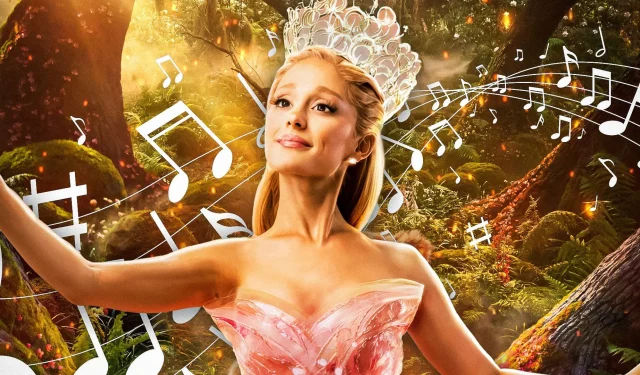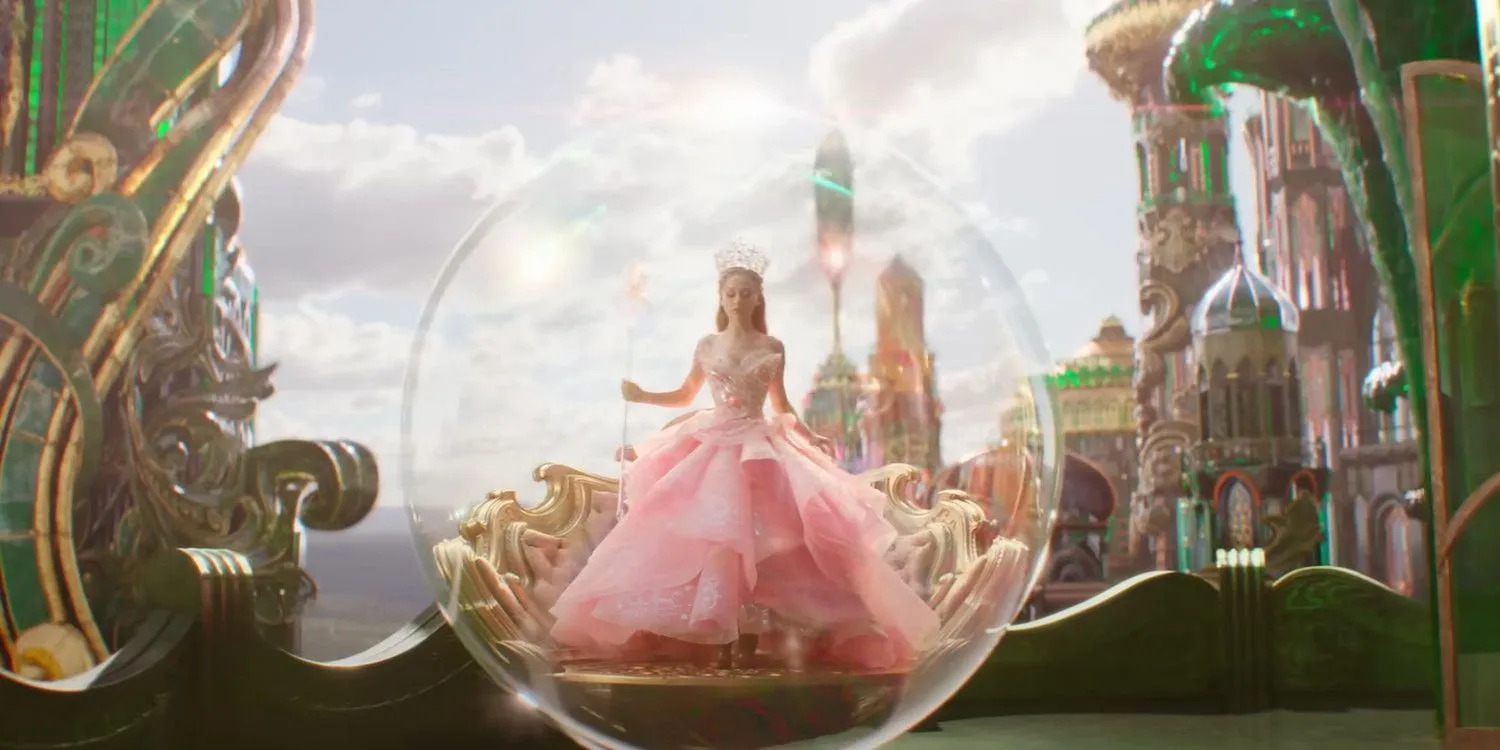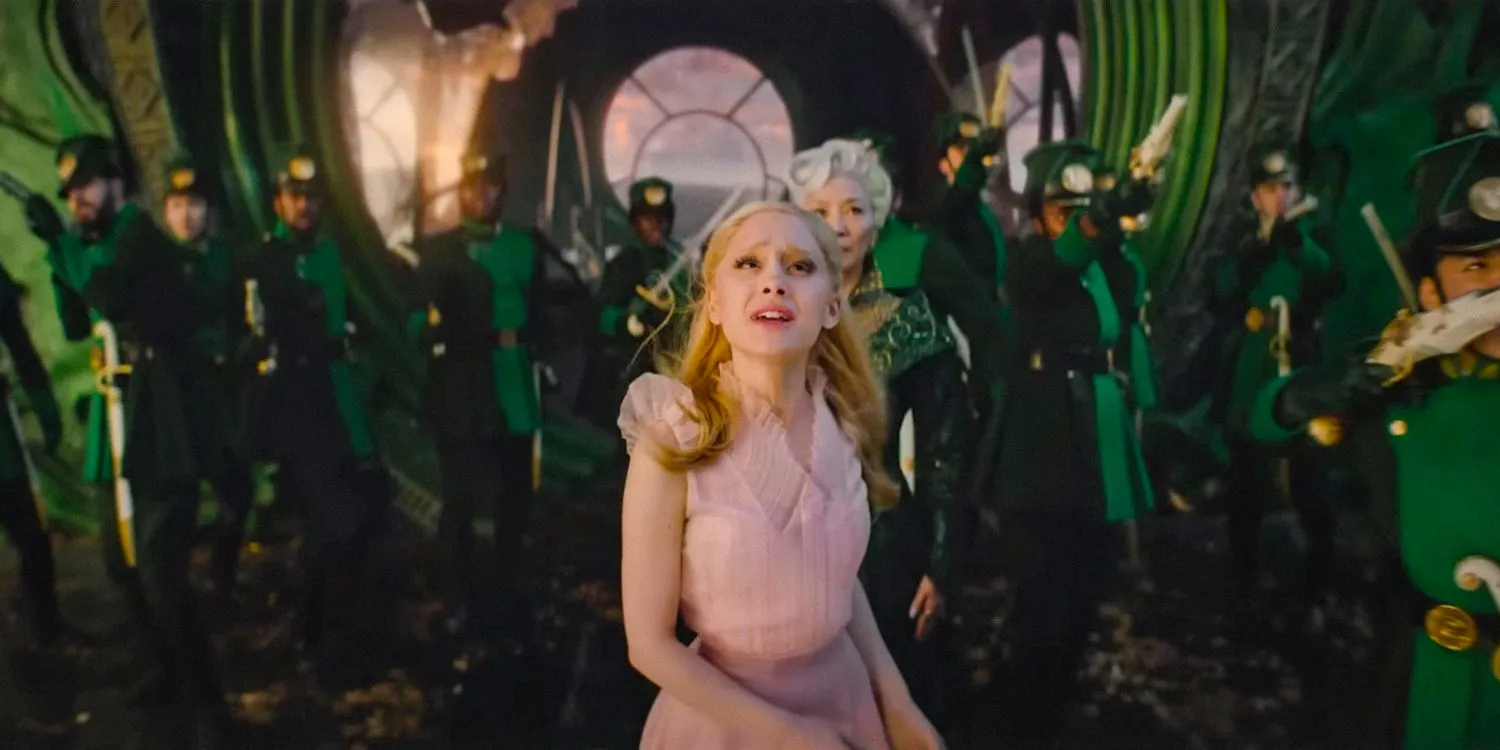
Warning: The following article contains spoilers for Wicked, both the film and the Broadway show.
The story of Wicked commences in the aftermath of Elphaba’s alleged demise, the Wicked Witch of the West, sparking a celebration among the citizens of Munchkinland. This festive atmosphere includes Glinda the Good Witch, who participates in the jubilant anthem “No One Mourns the Wicked.”However, her involvement in the celebration contrasts sharply with that of the Munchkins, revealing deeper complexities in her character.
As the narrative unfolds, it becomes evident that Glinda’s relationship with Elphaba is far from straightforward. Once close friends at Shiz University, their bond deteriorates as Elphaba renounces her loyalty to the Wizard and the ruling order of Oz, leaving Glinda to navigate the tumultuous repercussions. While Glinda’s public persona grows, her internal struggles deepen, especially as the events surrounding “No One Mourns the Wicked”unfold.
Glinda’s True Feelings in “No One Mourns the Wicked”
Glinda’s Loneliness by the End of Wicked

While the Munchkins jubilantly honor what they think is Elphaba’s defeat, the reality for Glinda is far more complex. Choosing to change her name from Galinda to Glinda marks her transformation as she grapples with feelings of guilt and sorrow. During the celebration, she voices her own tragic fate, revealing that she perceives herself as the wicked one, isolated in her grief.
“And goodness knows, the wicked’s lives are lonely. Goodness knows, the wicked dies alone. It just shows when you’re wicked, you’re left only on your own.”
As the story progresses into the second act, Glinda finds herself bereft not only of Elphaba, her closest confidant, but also of her fiancé, Fiyero. These were the most genuine connections in her life, and her allegiance to the manipulative Wizard has cost her dearly. With the Wizard gone from Oz, the weight of leadership now falls on Glinda, despite her lack of Elphaba’s remarkable capabilities. Faced with the necessity to maintain a façade of goodness, she continues to perpetuate lies, including those regarding Elphaba.
Glinda’s Perspective and Tone in “No One Mourns the Wicked”
Understanding Elphaba: A Perspective Beyond Public Perception

Set shortly after the finale of The Wizard of Oz, “No One Mourns the Wicked”captures the passage of time since Elphaba and Glinda’s days at Shiz. Now, they are publicly perceived as adversaries, with Glinda playing the role of the Wizard’s right-hand ally, contributing to Elphaba’s villainous image propelled by Madame Morrible.
Despite outward appearances, Glinda bears the burden of knowledge regarding Elphaba’s true intentions, recognizing her friend’s fight as just. Yet, she remains complicit in a system that perpetuates harm against Elphaba and others. While she may initially seem oblivious, Glinda is acutely aware of the public’s perception of her and the falsehoods surrounding Elphaba.
As citizens revel in the perceived victory over Elphaba, Glinda internally wrestles with her choices. Torn between her role as the Good Witch and her allegiance to the Wizard, Glinda’s rendition of “No One Mourns the Wicked”is devoid of genuine celebration. Instead, it encapsulates a deep sense of regret as she confronts the reality that her rise to power has cost her everything she once held dear.




Leave a Reply